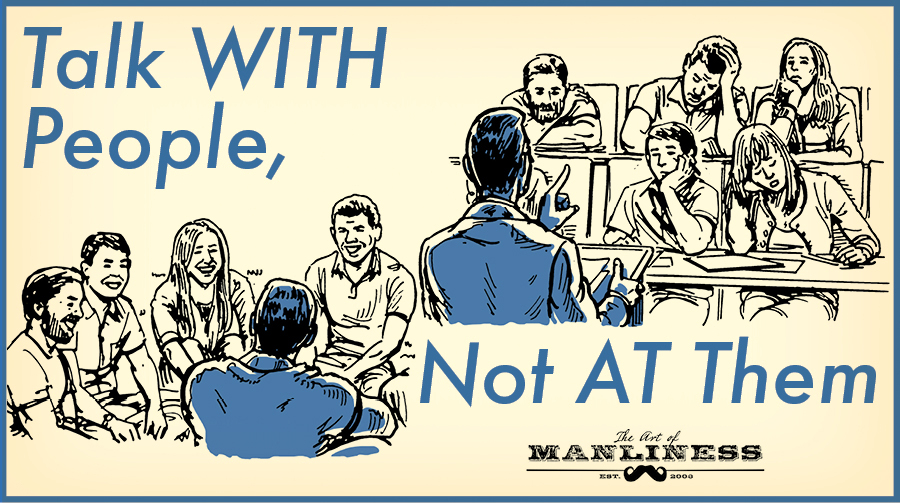
Do you ever struggle to describe your unique background? Do you have trouble explaining about certain not-so-flattering work history in a way that sounds believable? If so, you’re not alone.
Maybe you dropped out of college to run a coffee shop. Maybe you skipped college to join the Army. Maybe you were a ski bum for a few winters. Or maybe you spent a few years touring with your band, hoping ska would make a comeback (good luck with that).
Today’s working world tends to reward people who live plain vanilla, cookie-cutter lives. Anyone who has an “unorthodox” background outside of the norms tends to be written off, or at a minimum, faces an uphill battle explaining their background to potential employers, landlords, and possible future in-laws.
So what do you do if you have an unconventional background but you’re living in a conventional world?
If you can relate to this, then let me tell you about my friend Colin.
Colin dropped out of college to enlist in the U.S. Coast Guard, where he joined an elite force whose job was to retake ships that had been seized by pirates. I asked Colin to tell me about the craziest experience he could talk about without having to kill me. I half expected him to say the first rule of fighting pirates is you can’t talk about fighting pirates, but fortunately for you and I, he didn’t.
Colin described one incident in which his squad had to take back a freighter that had been pirated in the Gulf of Mexico. In the middle of the night, his Coast Guard cutter drove full speed ahead through the darkness, right up alongside the pirated ship. Colin and the rest of his squad then had to throw a rope ladder over the edge of the deck and climb up the swinging ladder onto the deck of the ship, as both boats were bobbing up and down in the ocean in complete darkness.
Oh, did I mention that the pirates were shooting machine guns down at them while they were scrambling to climb the ladder?
Once the squad was on deck and retook the bridge, then they had to go room-by-room through the ship using special night vision and thermal imaging goggles to see through walls and find where the pirates were hiding.
I can’t watch the scary parts of The Goonies without holding my wife’s hand, but for Colin, this was just a normal day at work. So you would think his experience would benefit his career, right? Guess again.
Why Being Unorthodox is Bad
Colin’s experience may sound amazing today, but when he left the Coast Guard before 9/11, he found it was hard to talk about his experience.
“People had no clue how to relate to me,” he said. Worse yet, “it had a very negative impact on finding a job. It was as if I’d been unemployed for 5 years.”
Colin had to find a way to talk about his unorthodox background in a world dominated by conventional expectations. Eventually he found words to describe his unusual work history. Now, “I always try to use empathy and metaphors to get people to listen to what I have to say,” he says. “The most important factors are respect, empathy and context. You have to make sure that the audience can understand what you’re saying.”
The funny thing is that Colin ended up working in information security — essentially protecting businesses from digital pirate attacks. It’s a profession that he says “found me, I didn’t find it.” And it couldn’t be a better fit.
So, do you have a story like Colin’s? Have you struggled to talk about your unorthodox background in today’s conventional world?
Do you know how to explain your experiences in a way that others can relate to and understand?
If you haven’t figured all of this out yet, then hang tight. Here are seven tips for how to talk about your unusual, unconventional background in a conventional world:
1. Don’t Avoid the Topic
We’ve all seen the television detective shows where the guy who is most reluctant to talk about his past always ends up looking like the guilty party, even if he’s not. Trying to avoid talking about your background can have a strangely similar effect. In other words, being reluctant about the subject can do more harm than just being open about it.
James Swanwick was a print journalist from Australia when he landed an interview to be an anchor on ESPN’s SportsCenter — even though he had zero TV experience. Swanwick knew his lack of an anchoring background might constitute a deal-breaker for ESPN, but he didn’t avoid talking about it.
“I admitted I had zero TV experience,” says Swanwick. “But I said I had studied [the other SportsCenter] anchors like Stuart Scott and Scott Van Pelt religiously. I displayed drive and passion.” He landed the job.
You don’t need to just throw your whole life history out there, but if someone asks, be open and honest with them. If it’s not a big deal to you, then it won’t be an issue to anyone else either.
2. Talk in Common Language
What’s the quickest way to lose someone’s attention during a conversation? Talking over their heads. Keep in mind that others don’t have the same experiences that you have, so you may need to slow down and explain key concepts or terminology.
My friend Dov Gordon is a brilliant marketing consultant. He never went to college, but you’d never know it. He’s actually quite well-read. When he talks about marketing concepts, he never uses big words or terminology. Likewise, my pirate-fighting friend Colin doesn’t use lingo that only his fellow Guardsmen would understand, but tells stories from his military days in terms civilians can readily grasp.
Be conscious of the language and slang that you use when talking about your past. Try to break things down in simple terms so that everyone can understand and enjoy your stories.
3. Use Humor
Humor is an excellent tool for talking about an unusual past. Keeping the mood relaxed and the stories lighthearted will make your audience more receptive to your message.
If anyone knows about having an unorthodox background in a conventional world, it’s David Nihill. A former standup comedian, Nihill has worked both as a financial consultant for PricewaterhouseCoopers and for startups in Silicon Valley.
“A good salesperson, marketer or leader, or business development person creates a connection,” says Nihill, author of Do You Talk Funny? 7 Comedy Habits to Become a Better (and Funnier) Public Speaker. “The fastest way of doing that is by making someone laugh.” Nihill says the best way to make people laugh is by coming prepared to any conversation with humorous stories from your unconventional background. “Write these [stories] out in their shortest and most effective form,” says Nihill. “Cut out all necessary words and remember the wisdom of Shakespeare: Brevity is levity.”
You don’t have to be a comedian. But we all have funny stories from our past, and your unusual background can be a great source to draw from.
4. Focus On Your Relevant Accomplishments
Joshua Jordison is a successful, Los Angeles-based entrepreneur whose company produces live music events and advises companies on music licensing issues. But he doesn’t come from a conventional middle-class background. Jordison grew up in a violent and crime-ridden neighborhood just outside of LA and was homeschooled for much of his education.
Although some people might be insecure about this upbringing — especially when rubbing elbows in Hollywood — Jordison actually says his unorthodox education doesn’t come up often.
“I’ve been asked where I went to college less than 6 times, in the past 5 years,” says Jordison. “People always want to know more about the things I’ve accomplished and don’t give any thought to my educational background.”
When Jordison does talk about his unorthodox background, he tries to focus on his professional accomplishments. “I just say what I’ve done and don’t inflate or exaggerate anything,” says Jordison. “You’ve just got to be authentic and connect with people on a human level.”
5. Be Vulnerable and Share Your Insecurities
Whenever you share stories about your unusual background, it might put others on the defensive, especially if your background is so sensational or unusual that simply talking about your achievements sounds like bragging. If your experiences seem amazing (especially in comparison to others’ mundane lives), you might inspire some jealousy.
There is, however, an easy way to combat this. Simply show them that you’ve made mistakes along the way. Talking about your own shortcomings helps to show that you’re still human. It doesn’t matter if you’ve jumped out of airplanes or apprehended notorious criminals — you’ve probably locked your keys in the car at least once along the way. (Just don’t lock your keys in the car when you’re handcuffing a criminal.)
Admitting your faults can allow others to empathize with your story and experiences, and relate to you as a human.
6. Explain Your Transferable Skills
Even if you have a highly unusual, unconventional background, there are likely some skills you developed in your earlier life that are transferable.
Just ask Josh Parkinson. After graduating with a master’s degree in English, he took the next logical step — he hopped on a plane for Europe, where he spent the next five years as a street musician.
Seems hard to find transferable skills in that experience, right? Wrong. In fact, you could argue that spending five years as a street musician means you must have a whole host of transferable skills. As a street musician, you have to be scrappy, creative, industrious, and thick-skinned. You have to have a good work ethic and you have to be able to sell yourself to strangers.
The bottom line is you need to find a way to spin your past experiences so that there are transferable skills that can apply to the more conventional world.
Today, Parkinson is the co-founder of a successful San Francisco-based tech startup called Post Planner, so at least some of his skills must have carried over into the world of entrepreneurship.
7. If Possible, Merge Your Unorthodox Background With the Conventional World
Finally, there’s an old saying — I think it was Mark Twain who once said “if you can’t beat ‘em, join ‘em.” What better way to thrive in our conventional world than to bring your unorthodox background into the present.
Just like Colin went from fighting actual pirates to fighting digital pirates, your best approach may be to embrace your unorthodox background and merge it with the conventional world.
David Nihill, the former standup, did exactly this. Combining his background in comedy and work with startups and other businesses in Silicon Valley, Nihill created FunnyBizz, a conference aimed at helping business people become funnier.
What’s so great is that he literally bridged his unorthodox background in comedy with his work in the business world. Now that’s how you get the last laugh.
Your Past Doesn’t Matter
Ultimately, your past background or experiences are insignificant. What matters the most is what you make of it, and if you are able to connect with people and have them relate to your story.
In our conventional world, inspiring just a bit of envy and curiosity in others can be a real asset. As Nihill puts it, “Unorthodox means interesting. Your diverse and unorthodox background gives you a much higher probability of having something in common with someone.” And that something in common may simply be that you’ve had an experience that others have always wondered about.
This is exemplified by Meg Jay, psychologist and author of The Defining Decade. When she applied for academic jobs, she was surprised that her interviewers, rather than asking about her collegiate credentials (which were plenty), really wanted to talk about the time she had spent working for Outward Bound, an outdoor leadership program. Many people have always wondered what it would be like to be a wilderness guide, so rather than being a detriment to her hireability, it turned out to be one of the most valuable parts of her resume. Her ability to talk about being part of Outward Bound in a relatable way gave the interviewers a vicarious chance to experience a path less taken, and thus made Jay memorable.
As Maya Angelou once said, “People will forget what you said, people will forget what you did, but people will never forget how you made them feel.”
_____________________
John Corcoran is a former Clinton White House Writer and attorney. He shares networking tips and strategies at his blog Smart Business Revolution. You can download his free, 52-page ebook, How to Increase Your Income Today by Building Relationships with Influencers, Even if you Hate Networking.






